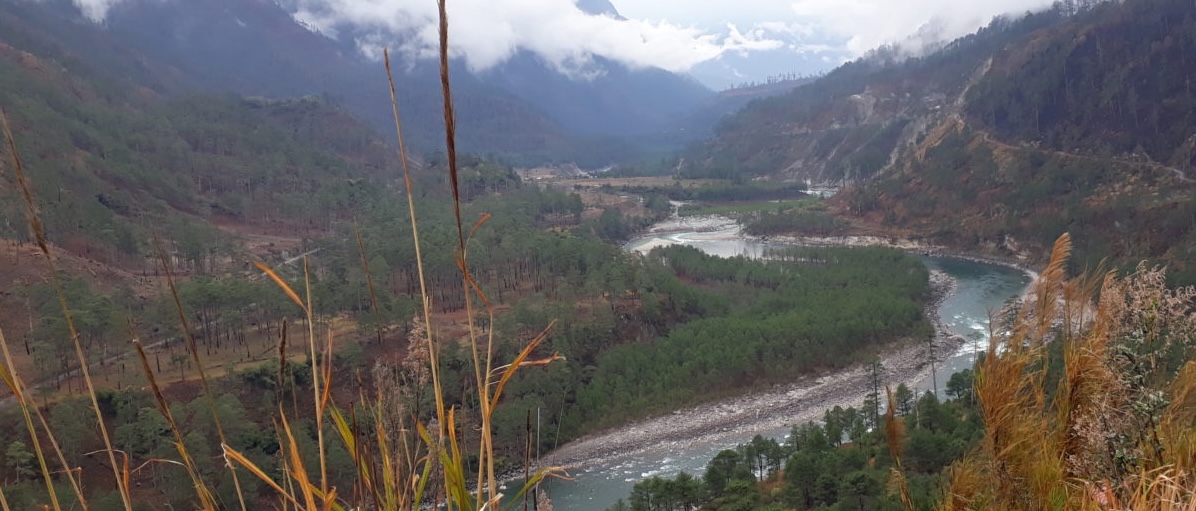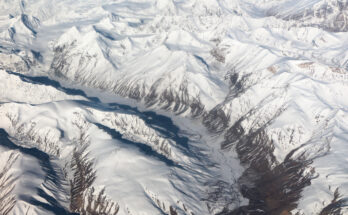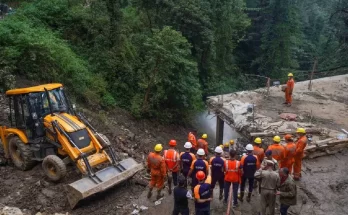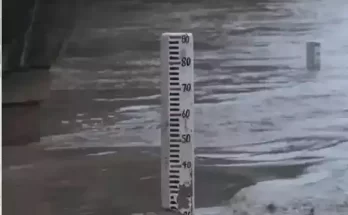The development comes as part of the the two-day Russia India Business Forum in New Delhi.
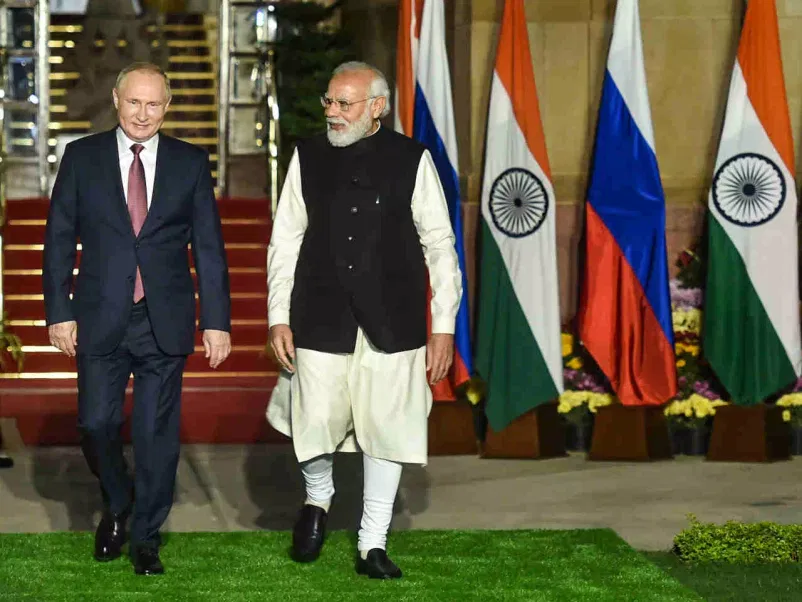
PM Modi said Vladimir Putin’s second visit abroad during the COVID-19 pandemic reflected his personal commitment to the India-Russia ties. (Photo credit: PTI)
Emphasising upon the importance of scientific and technological progress bringing about change in the world economy, Tigran Sargsyan, Deputy Chairman of the Board of the Eurasian Development Bank on Thursday said the next 10 years in dominating the sector belong to the Asian countries.
“The backbone of the new economy will be knowledge and not goods. The competition will be won by the countries having knowledge and human capital would be the main resource. It is where Asian countries will surge ahead and the multipolar world will not have any alternatives but to work out new rules of coexistence,” Sargsyan told the opening session ‘India and Russia in a New World’ on day two of the two-day Russia India Business Forum.
Skannd Tyagi, founder and Chief Executive Officer, Starshot Ventures, concurred: “Knowledge is power and this is going to be a knowledge economy. So, the more we share knowledge, the more we progress.
We will be able to lead to a place where there is going to be unhindered technical progress.” The deliberations here started on a buoyant note and some loud thinking on part of the moderator Andrey Bezrukov, President of Technological Sovereignty Exports Association and also a professor at the Department of Applied International Analysis, MGIMO University.
“Both India and Russia are facing new opportunities, as well as new challenges. The main trade flows are no longer directed westwards but it is the dawn of the east,” Bezrukov said.
The difficulties in completing the International North-South Transport Corridor – a 7,200 kms long multimodal trade route comprising ship, rail and road network that will primarily move freight from India, Iran, Azerbaijan and Russia – was spoken about by several speakers.
“The North-South Corridor that we are dreaming of …. the events in Afghanistan made us rethink how this corridor should be built. India’s and Russia’s interests are the same and we can together think, how to build this corridor and what kind of logistics can be suggested. This will stimulate the integration at the regional level,” Sargsyan said
He added that “this cannot happen without digital strides. Even the development institutes such as the Asian Development Bank (ADB) are pushing for a digital transformation. We have a unique chance to work with our Indian colleagues in the digital world.”
Declaring that India in 2030 will be much bigger than what it is today, Shailesh Pathak, Secretary General of Federation of Indian Chambers of Commerce and Industry (FICCI) invoked spiritual guru Sri Sri Ravi Shanker’s anecdote to define what India and Russia can do.
“Once Sri Sri was asked the difference between destiny and free will, to which the Guru replied, whatever has happened in the past is destiny. Whatever you are going to do in future, is free will. India and Russia can do this. It is a good time to see how we benefit from our free will and choices,” Pathak said.
Commenting on the continued popularity of Indian film actors in Russia, the FICCI Secretary General also recalled how he met people of different age groups from Russia, who are fans of actors such as Shah Rukh Khan and Mithun Chakraborty.
“This kind of people-to-people friendship needs to be converted into the rupees and ruble business. I represent FICCI, we have 250,000 members. They are all optimistic, India will become the third largest economy,” he added.
The session discussion threw light on the changing geopolitics of Greater Eurasia and the roles that both India and Russia can play in building a secure and prosperous continent.
Aleksandr Babakov, Deputy Chairman of the State Duma of the Federal Assembly of the Russian Federation, explained how in the vast continent-like country that Russia is, only 1 per cent of earth is explored.
“Only this 1 per cent has been fruitfully explored and used, rest is there, unexplored. If we talk of currency, it is not just gold, it is rare earth and other minerals that are in abundance in Russia. If we explore this and make these the new currency, dollars and Euro can be restricted to a few countries only,” Babakov said.
Taking his point further, Sammy Kotwani, President, Indian Business Alliance (IBA), reminded the gathering that land and the resources availability is easy in Russia. “One dollar for one hectare, that is how all business proposals get special land prices. Russia has all the raw materials, it is for businesses to explore.”
Highlighting how India and Russia need to adapt to the ever-changing landscape and pointing out how environment and climate change are the pressing challenges for both India and Russia, Kotwani said, “It is incumbent upon us to find innovative solutions. A new financial system is actively being sought to break the monopoly of the dollar. Western-centric institutions are being replaced by a growing BRICS+.”
Moderator Bezrukov summarised the session by explaining how India and Russia represent a transforming force in the new world and how the platform (Russia India Business Forum) needed to continue the dialogue “not only till 2030, short term, but also long term, by 2050, when the two countries would be completely transformed”.
(This story first appeared on news9live.com on Mar 26, 2023 and can be read here.)
